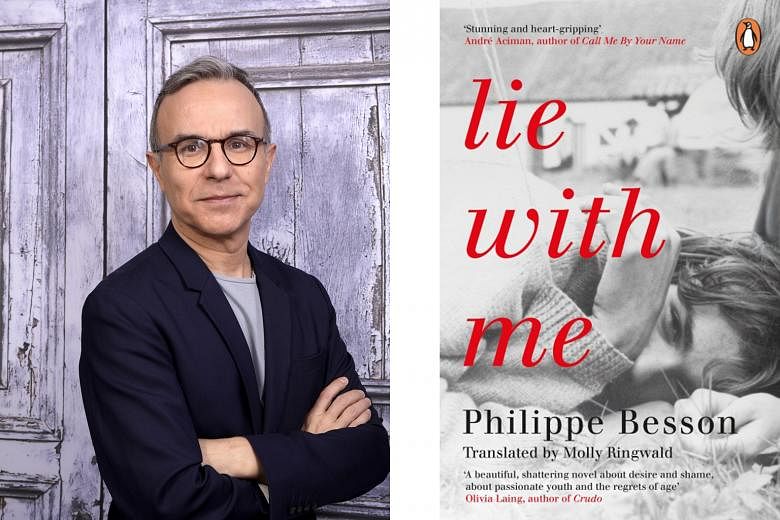FICTION
LIE WITH ME
By Philippe Besson, translated by Molly Ringwald
Penguin Books/ Paperback/ 160 pages/ $19.26/ Books Kinokuniya/4 stars
It has been years since Philippe left his home town of Barbezieux in south-western France to become a writer, but a chance encounter with a man resembling his first love takes him back to his adolescence.
Philippe is 17 when he develops a crush on schoolmate Thomas Andrieu. They are worlds apart and their love story is a reflection on class differences and homosexuality in the 1980s.
Philippe is the bookish, high-achieving son of the school principal, and everyone expects he will go on to greater things. Thomas, the son of small-time vineyard farmers, speaks little, smokes alone and is popular with girls.
Philippe is drawn to his aloofness and disengagement with the outside world, and it is a surprise when Thomas asks Philippe out in secret one winter morning.
They end up sneaking into a deserted locker room where they make love, marking the start of a clandestine relationship doomed to a short-lived existence.
Besson, on whom the protagonist appears to be based, renders the contradictions in the boys' lives with refreshing honesty through Philippe's voice.
Thomas keeps up the appearance of being attracted to girls. In spite of their secret meetings, Thomas and Philippe hardly acknowledge each other when they cross paths.
"There is often a staggering intimacy between us, a closeness beyond imagining, but the rest of the time our separateness is absolute," says Philippe. "Such schizophrenia could bring even those with the strongest equilibrium to the edge of reason, and let's admit it, I didn't have much equilibrium to begin with."
Despite their mutual attraction, the stark difference in their backgrounds affects their relationship.
In one instance, Philippe suggests they meet at his home and Thomas is unable to mask his reluctance. "I form several theories... he prefers neutral territory, a place where we are equal," Philippe thinks.
When Thomas says that he wants to do something other than take over his family's farm, but is not sure if he can do so as he is the only boy in the family, Philippe is offended by the idea. He replies that farming is no longer hereditary and agriculture is bound to die anyway. This upsets Thomas.
"He says that for me, things are simple, that everything will be fine, that I will get out of it... Whereas for him there's a barrier, an impenetrable wall," Philippe recalls.
They eventually part ways and Philippe leaves the small town to further his studies.
Besson's newly translated novel, which was first published in 2017 and won the Prix Maison de la Presse, an annual French literary prize, is an ode to teenage romance.
The monologues of Philippe's younger self read like diary entries and invite readers to share his heartbreak.
The novel tugs at heartstrings the way a coming-of-age movie may, particularly when it skips forward more than 20 years to see an adult Philippe meeting Thomas' son.
If you like this, read: A Boy's Own Story by Edmund White (Pan Macmillan, 2016, $18.95, Books Kinokuniya), a coming-of-age tale set in the 1950s about a boy who struggles with his sexuality and finds solace in art and literature.


